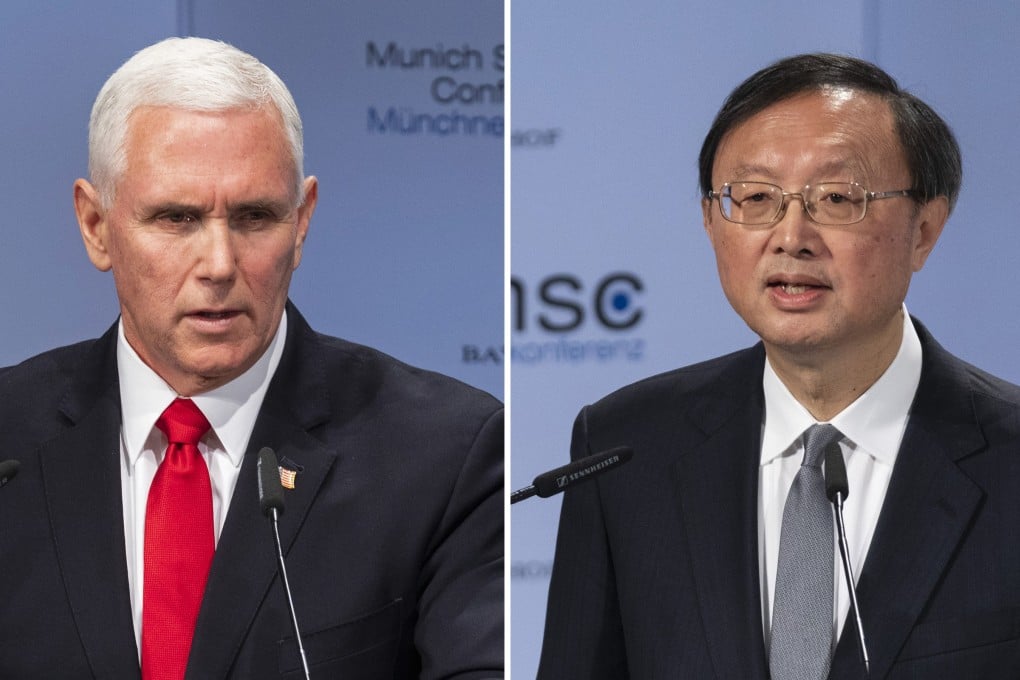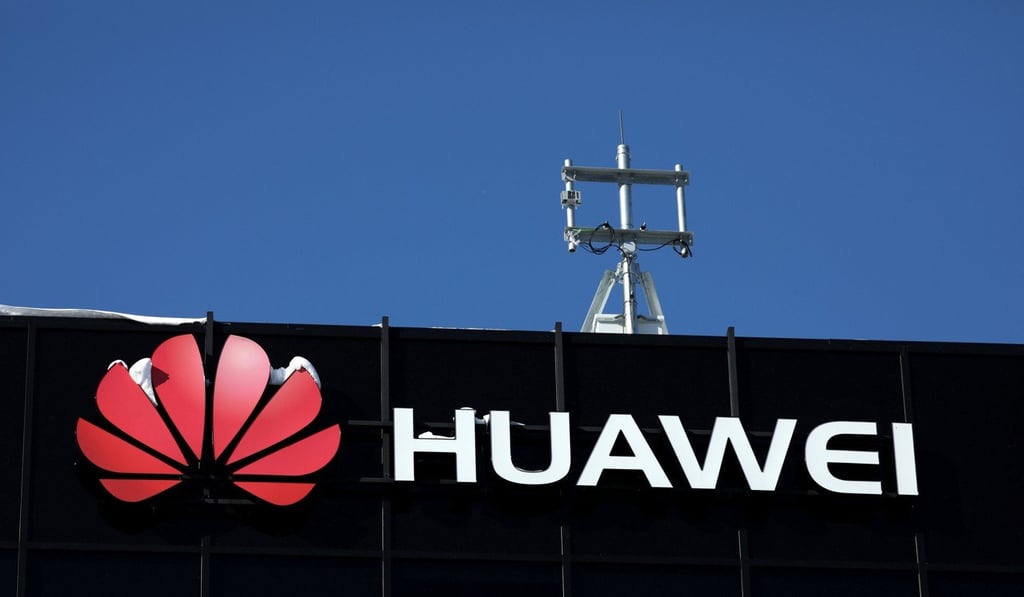China, US trade barbs over Huawei and South China Sea at Munich conference
- US Vice-President Mike Pence urges leaders to reject the Chinese telecoms firm, saying Washington has been clear ‘on the threats posed’
- China’s State Councillor Yang Jiechi hits back that Beijing rejects ‘technological hegemony’

Beijing and Washington traded barbs over Huawei Technologies and the South China Sea at the Munich Security Conference on Saturday, as both sides also sought to sell their vision for regional security.
In a speech lasting almost 30 minutes, US Vice-President Mike Pence urged political leaders at the conference to reject the Chinese telecoms giant.
The US has been “very clear with our security partners on the threats posed by Huawei and other Chinese telecom companies”, Pence said.
“Chinese law requires them to provide Beijing’s vast security apparatus with access to any data that touches their networks or equipment,” he said, adding America’s allies must protect critical telecoms infrastructure.

Speaking immediately after Pence, Chinese State Councillor Yang Jiechi said China rejected “technological hegemony”.